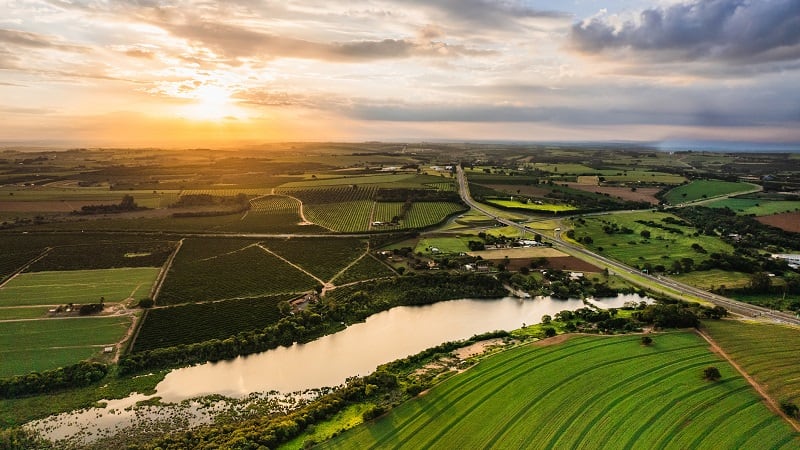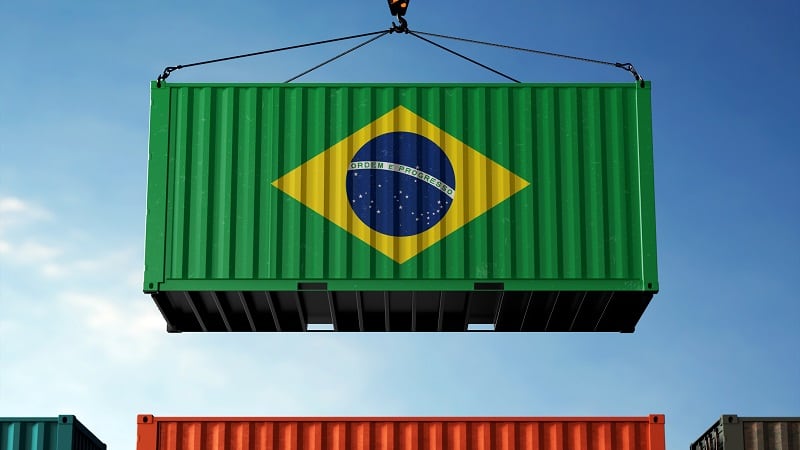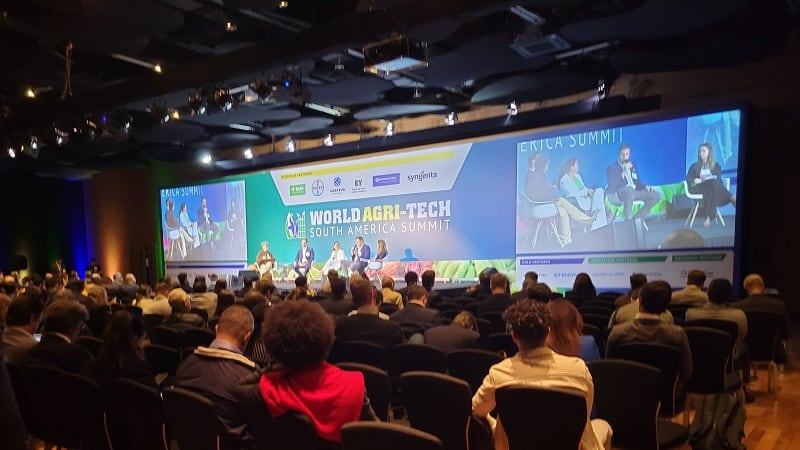Ongoing global trade tensions, a push for more sustainable agricultural solutions and a strong entrepreneurial spirit in Latin America are crucial for the next chapter of agtech’s success story in the region, Francisco Jardim, general partner at SP Ventures, told AgTechNavigator during a visit to the venture capital firm’s São Paulo headquarters.
“From an investor perspective, it has never been a better moment to have dry powder because we are seeing incredible entrepreneurs. The rise of this entrepreneurial movement in Latin America, it is a broader social, anthropological movement. People want to have ownership of their lives,” Jardim explained.
Can Latin America capitalize on global trade tensions?
Geopolitical events, like the Trump administration’s trade policies, are creating opportunities and challenges for Latin America’s ag sector. The Trump administration argues its trade policies and immigration crackdown are designed to bolster domestic production and keep America safe.
However, these policies could backfire and rewire agricultural trade flows, increasing costs for US shoppers and spurring demand for Latin American produce, Jardim noted.
“When we look at the geopolitical situation, the US [has] a very anti-immigration policy, so the border is closed. ... What we expect is that there will be bottom of the pyramid labor inflation. There won’t be enough cheap labor to work the farms. So, this will create a greater American dependency on importing fresh produce from Mexico, and you are going to need to finance that amount of change,” he elaborated.
Over the years, Latin America developed a financial tech (fintech) ecosystem that can finance this change, with providers like Agrolend, Agrapp, Seedz, Terra Magna and many others operating in the region. “Brazil alone has created more than a dozen fintech unicorns from banking, payments, infrastructure,” he noted.
USDA Secretary: 'No amnesty' for migrant farm workers
On July 8, the USDA unveiled its National Farm Security Action Plan, outlining an "America first" agenda for US agricultural production that advocates for enhanced supply chain resilience and securing US research, as the agency shared in a press release .
During a press conference on the plan, USDA Secretary Brooke Rollins affirmed the Trump administration's stance on mass deportation, saying that there will be "no amnesty' for undocumented farm workers, in response to questions from a Daily Wire reporter .
Brazil’s trade relationships with other countries, especially the EU, are changing because of these global trade tensions. Brazil has been locked into trade negotiations with the EU, since the Fernando Henrique Cardoso government — roughly 25 years — Jardim explained.
Fintech platforms will play a crucial role in an eventual trade deal between the EU and Brazil, as the EU will demand more sustainability data, requiring growers to invest in agtech, Jardim added.
The trade deal with EU “will come with major strings attached in terms of being able to deliver more sustainability analytics on the supply chains, so tools that prove that the farmers did not produce in areas of deforestation. Fintech [companies will] finance farmers that are demonstrating better regenerative agriculture practices. These things will be sped up by the regulatory pressure that comes from the EU ... to enter that market,” he elaborated.
Biologicals, fintech are crucial to Brazil’s agtech revolution
Brazil is making strides on shifting away from synthetic crop inputs with the embrace of ag biologicals, since the country’s double and triple cropping requires more consistent soil care, Jardim explained.
“We are starting to see an early transformation of the fungicide market, ... a $5 billion market in Brazil. And in five years, this will be significantly overtaken by biologics, and that will create some pretty big industries in the biologic space. Then, simultaneously, we are starting to see some people really become convinced that they can take tackle glyphosates with biologics,” he said.
Though biologicals and fintech have taken off in Brazil, robotics are less likely to find widespread adoption in the country as macroeconomics do not create the conditions for a dramatic shift in food production, Jardim said.
“We have very expensive cost of capital interest rates and very cheap labor. So, robotics thrive when you have very low cost of capital and very expensive labor. So, this inversion, it is not favorable for robotic adoption here,” he noted.
What Brazil’s 2026 election will mean for agtech?
Aspiring Brazilian start-ups are facing a major obstacle in the form of austerity, Jardim admitted. The Brazilian government under Michel Temer signed constitutional amendment number 95 (EC95) into law in 2016, which limited government spending for 20 years.
However, the Luiz Inácio Lula da Silva administration made progress on a number of ag-related efforts in recent years, including a biologics regulatory framework that passed last year and incentives for more biofuels, Jardim pointed out.
“The macroeconomic scenario is bad, but the microeconomic [scenario] is good” in Brazil, he noted.
“From an investor perspective, it has never been a better moment to have dry powder because we are seeing incredible entrepreneurs. The rise of this entrepreneurial movement in Latin America, it is a broader social, anthropological movement. People want to have ownership of their lives.”
Francisco Jardim, general partner at SP Ventures
Elsewhere in Latin America, Argentina is “seeing a revival” under president Javier Milei, with “Argentinians in Brazil going back to Argentina to start businesses,” Jardim said.
Founders “are all starting companies with a major austerity mentality. They are not counting on having more money. So, they are always focused on unit economics, break even, taking things slow, and understanding that growing a business can be life’s work. ... You have to be ready to build a business and stick to it, 20-30 years. And maybe that will be the most important thing you will do,” he elaborated.
Brazil will hold presidential elections next October, with Silva eligible for a fourth term. A candidate that challenges Silva with a pro-reform and -business platform could lead to more agtech investments, Jardim predicted.
“The big bet right now from the markets and entrepreneurs is that next year we have elections. ... In Brazil, a lot of people are saying things are really only going to change and get better when we have a change in the administration,” he said.





